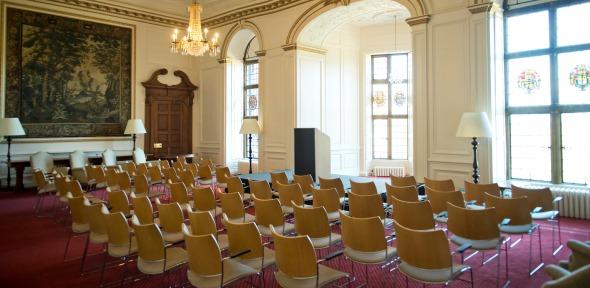Institute of Continuing Education (ICE)

Come along to one of our many public lectures and Topical Talks throughout the year. These talks are given by leading experts from the University of Cambridge and beyond, and are an important part of our commitment to public engagement. Learn more about a new subject and join the discussion.
Dr Joe Reed will be in conversation with fellow ICE creative writing tutor Dr Alycia Pirmohamed about his new novel, Terrestrial History in this free Zoom event on Tuesday, 12 August 2025, 7pm,...
Dr Yvonne Battle-Felton will be in conversation with Dr Midge Gillies about her new book, Atlantic Furies in this free Zoom event on Thursday 23 October, 7-8pm, GMT.
Midge will talk about...
Creative writing tutor Dr Lucy Durneen will be in conversation with Julian Hoffman in this free Zoom event on Tuesday, 16 December, 7-8pm, GMT.
Julian was born in the northeast of England...
Throughout much of the 20th century, the wages of the weak were enhanced, directly or indirectly, by the strength of trade unions. In the past two or three decades, global competitive pressures have undermined them. Professor William Brown discusses the different ways in which society can respond.
This lecture explores the history of girls' education in Africa over the past 20 years and describes the current status quo in the five countries in which Camfed International is working. Ann Cotton describes the Camfed Model that supports girls through primary and secondary education and on to securing livelihoods in the rural areas of Africa.
This lecture by Professor Simon Goldhill, Director of CRASSH, describes how Victorian painters used the classical body to express a complex and often conflicted notion of male desire, and how such images still inform the imagination today.
Today's world is faced with a multiplicity of challenges including energy, food, water and economic well-being. Each of these will ultimately culminate in an impact on the agenda for the development of health services. Professor Sir Leszek Borysiewicz discusses the challenges and priorities for world health.
Politics have played a more significant part in the regulation of reproductive medicine than is commonly recognised. Baroness Deech discusses her work as chair of the UK Human Fertilisation and Embryology Authority (HFEA) and argues that rearranging the regulatory body will not in fact save money but risks the accountability and security of the field.
While the years of New Labour have been sometimes characterised as a golden age for culture, the first decade of the 21st century was a difficult time for heritage. Simon Thurley, who was at the helm of English Heritage through the period, looks back at what went wrong and assesses the future of the nation’s heritage.
In this lecture, Professor David Spiegelhalter looks at examples of communication of sensitive topics, from statins to swine flu, climate change to volcanic ash.
In this lecture, Dr Hugh Hunt describes the challenges he and his team encountered when recreating the bouncing bomb, including scale model testing, design of a drop rig, targeting the dam and designing the explosive. The experience really put into perspective the wartime achievements of Barnes Wallis and his engineers and airmen.